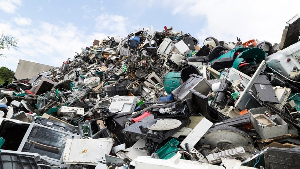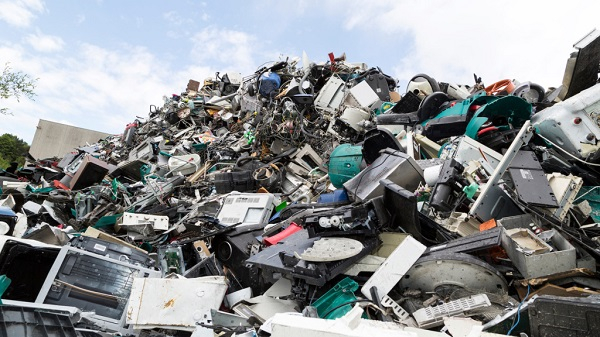 Ghana has adopted comprehensive e-waste regulations and standardised
Ghana has adopted comprehensive e-waste regulations and standardised
The Global Environment Facility (GEF) has successfully concluded a two-day regional training aimed at strengthening the oversight capabilities of Operational Focal Points (OFPs) across West Africa.
Held from April 10–11 in Accra, Ghana, the training brought together 23 OFPs and their staff from 13 countries, marking a significant milestone in GEF’s efforts to enhance project accountability and impact in the region.
The initiative is part of GEF’s broader “Financial and Training Support to GEF OFPs in Africa on Project Oversight” program, under its Country Engagement Strategy for the GEF-8 Replenishment Period.
It is being implemented with support from the Tropical Biology Association (TBA), which is working with OFPs in 25 African countries, 14 in West Africa and 11 in Southern Africa, between January 2025 and April 2026.
Designed to increase national ownership of GEF-funded environmental projects, the training equipped participants with knowledge and tools to effectively plan, manage, and oversee their respective GEF portfolios.
“GEF is currently revising its co-financing policies to reflect national priorities, making the fund more relevant and impactful,” Omid Pahizkar, Operations Officer at the Global Environment Facility said during one of the sessions.
To reinforce the theory with practical exposure, participants visited an e-waste separation site at Agbogbloshie in Accra, part of the Africa Environmental Health and Pollution Management Program (AEHPMP).
The site provided valuable insights into how Ghana’s Environmental Protection Agency (EPA), the project’s lead agency, is implementing GEF-funded initiatives on the ground.
“This visit is part of a broader effort to transfer skills and ensure GEF OFPs take greater ownership of their project portfolios,” Director of the Tropical Biology Association Dr Rosie Trevelyan said.
The AEHPMP, a GEF-supported regional initiative operating in Ghana, Senegal, Tanzania, Zambia, and Kenya, seeks to reduce environmental health risks associated with pollutants, particularly in artisanal and small-scale gold mining and electronic waste (e-waste).
In Ghana, the program has already collected over 800 tons of e-waste through a network of 7,000 local vendors, contributing significantly to improved air quality in areas like Agbogbloshie.
According to Ghana’s EPA, the country has adopted comprehensive e-waste regulations and standardized operating procedures for all collected items, including batteries, turbo plastics, and cables.
The site visit left a strong impression on participants, many of whom expressed a desire to replicate Ghana’s regulatory and operational models in their home countries. Several also called on Ghana’s EPA to share its expertise more widely across West Africa.
Beyond environmental benefits, participants praised the program for creating local employment while promoting sustainable practices.
The training was co-hosted by Ghana’s GEF Operational Focal Point Office and is expected to foster deeper collaboration between the GEF and its country partners, ensuring more effective delivery and oversight of environmental projects in the region.
